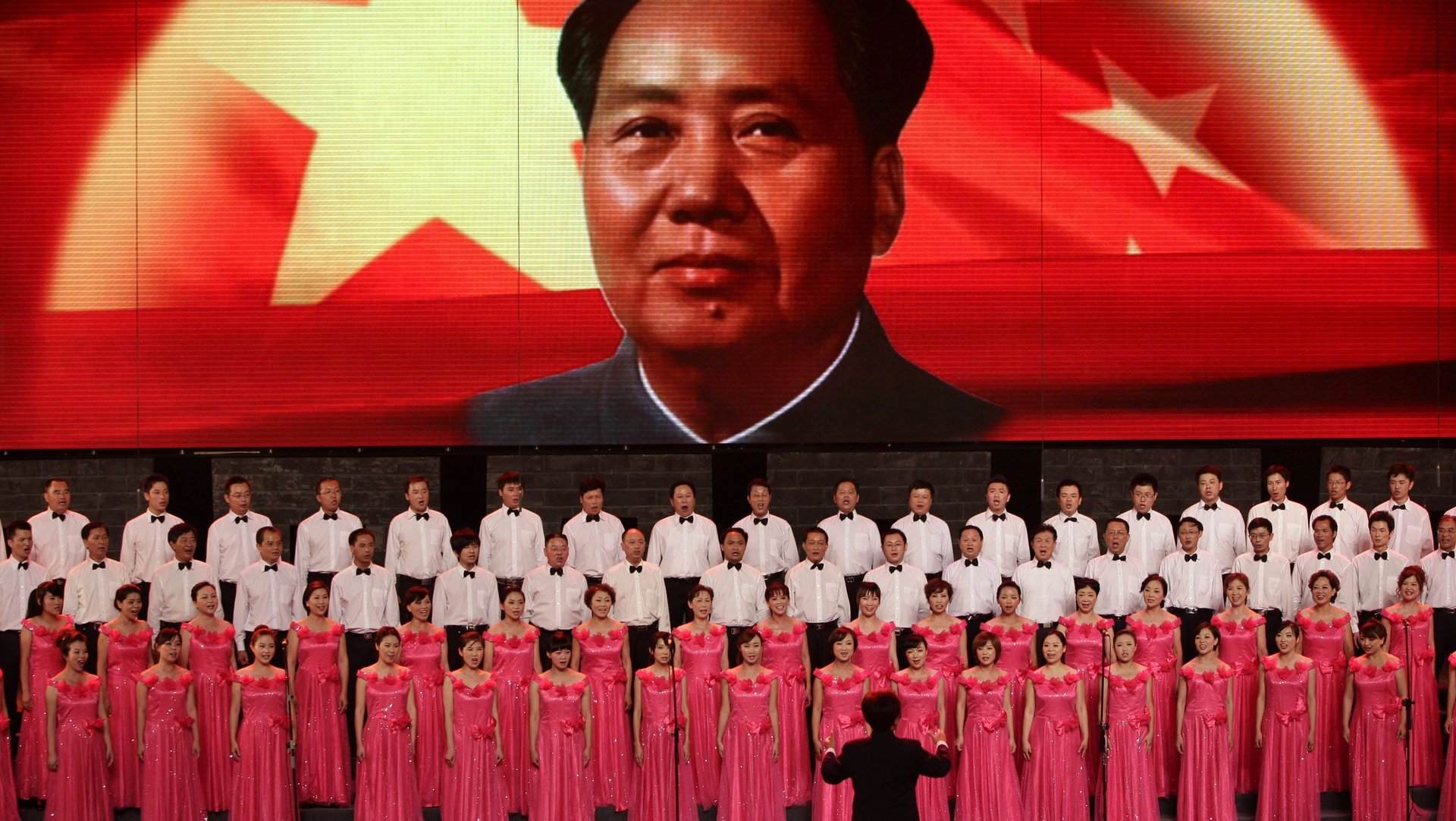A petition calls for canceling tribute concerts to “mass murderer” Mao Zedong in Sydney and Melbourne
Entertainment events celebrating the life of Adolf Hitler or Pol Pot would not go down well in most cities. Yet in Sydney and Melbourne, concerts planned for early next month will celebrate the life of Mao Zedong—a ruler many consider one of the worst mass-murderers in history.


Entertainment events celebrating the life of Adolf Hitler or Pol Pot would not go down well in most cities. Yet in Sydney and Melbourne, concerts planned for early next month will celebrate the life of Mao Zedong—a ruler many consider one of the worst mass-murderers in history.
The concerts, marking the 40th anniversary of Chairman Mao’s death on Sept. 9, 1976, will take place on Sept. 6 in Sydney and three days later in Melbourne, at the town halls of each city. In protest, a loose collective called the Embrace Australian Values Alliance has created Change.org petitions—directed to the mayor and city councilors of both cities—calling for the events to be canceled.
The concerts are being heavily marketed in Chinese-language media in Australia, with promotional text saying the concerts will ”commemorate the great leader,” “illustrate Mao Zedong’s humanitarian personality,” and describing the late ruler as “a hero in the eyes of people all over the world.”
Many would beg to differ. Mao’s 10-year Cultural Revolution, a sociopolitical movement launched in May 1966 to combat capitalism, led to millions being persecuted across mainland China. Torture, murder, and public humiliation becoming routine. Mao’s economic policies also led to the Great Famine, which by some accounts resulted in over 36 million deaths.
On the petition page organizers argue:
More and more people see him as one of the most cold-blooded dictators in human history, surpassing the cruelty of Hitler in Germany, Stalin in Russia and Pol Pot in Cambodia… We cannot tolerate tributes to a violent dictator… Sydney City Council should not be associated with a tyrant who most people consider as the biggest mass murderer in history.
Badiucao, a political artist from China currently based in Australia, shared this cartoon (the bird shown is an emu, a species endemic to to Australia):
Some of today’s leaders in Beijing prefer a whitewashed version of the Cultural Revolution. President Xi Jinping has revived Mao’s ideologies, earlier this year ordering all Communist Party officials to learn the “art of leadership” by reading a Mao essay.
Many of China’s political elite do not hold favorable views of the Cultural Revolution, with their own families having suffered from it. But by promoting the more palatable version of events, Chinese-Australian businesspeople can curry favor with the Chinese embassy and some of Beijing’s elite. The concerts are being put together by companies and community organizations through the International Cultural Exchange Association of Australia.
“The city cannot intervene and cancel events at its venues on the basis that some groups may find them objectionable,” a City of Sydney spokesperson told The Australian. “The city has no grounds to cancel the International Cultural Exchange Association’s hire of Sydney Town Hall.”
The presence of the late Chinese ruler is being felt in other cities as well. In Hong Kong, a Cantonese opera revolving around Mao’s private life will premiere on Oct. 1, also National Day in China. With paranoia about mainland-ization already running high, promotional posters for the opera have some Hong Kongers on edge.
In May, a performance at Beijing’s Great Hall of the People featured singers and dancers performing Cultural Revolution songs amid nostalgic images of Mao. The performance led to an uproar in mainland China, prompting calls for an investigation into the matter from those seeking to prevent the period’s dangerous ideology from returning.
An echo of that uproar is being heard Down Under.